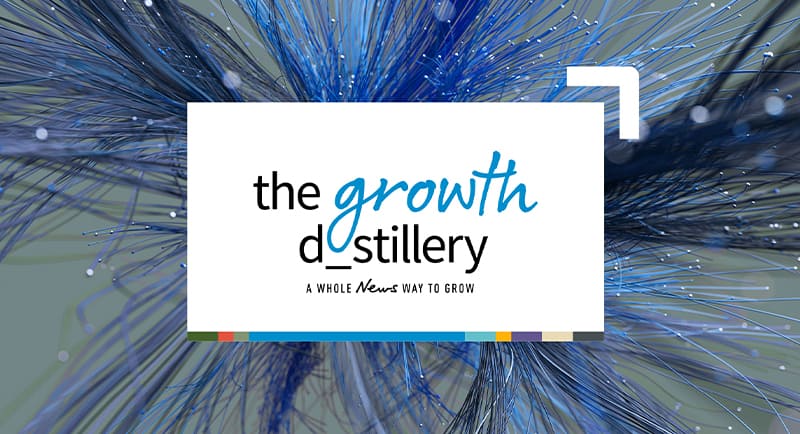Earlier this month, News Corp Australia announced the launch of The Growth D_Stillery, a dedicated research and intelligence service offering consumer insights to help marketers navigate brand challenges, anticipate consumer trends and understand where best to invest.
See Also: Behind The Growth D_Stillery: News Corp’s newest research and intelligence offering
The Growth D_Stillery amplifies key research insights on trade marketing platforms, and on News Corp Australia channels. As a part of its release into market, the platform has launched a series of vodcasts hosted by News Corp Australia’s Director, Growth Intelligence Centre Dan Krigstein, with guests from all corners of the marketing world.
Released fortnightly, the vodcasts aim “to really humanise these insights,” according to Krigstein, and tackle a new marketing challenge every episode.

Dan Krigstein
This week, Mediaweek spoke to Rikki Pearce, Managing Director of Verve Australia about her involvement in the vodcast.
When asked why she said yes to appearing on The Growth D_Stillery vodacst, Pearce says that “I’ve known the Growth Intelligence Centre for a while, and it’s always fun to sit down with Dan.”
“The work that we’ve done together is really compelling. It’s great to get into a more engaging format that people can pick up and listen to, and chop and change with as well. It was a really easy yes from us to jump in.”
As marketers find their way through an economy that is anything but stable, Pearce says that there are two major hurdles the industry is facing – however one presents more of an opportunity than might be expected.
“The first is knowing how consumers are going to behave. They’ve fundamentally changed – they don’t even necessarily know how they’re going to behave. They’re inexperienced with making trade-offs to serve these new needs, and so predicting what they’re going to do and how we can show up for them in a way that’s authentic and relevant is really difficult.
“When we talk about making those trade-offs, I think it’s important to note that not only have consumers changed and they’ve got new needs, but they’re now having to make decisions under conditions that they’re typically not very adept at doing – those are conditions of financial scarcity. We all know how hard it is to budget, and now we’re trying to do that in this racing inflationary environment, where we’re not actually aware of how much we’re spending either.
“The second is an opportunity, it’s that loyalty is up for grabs. We’re in an environment where loyalties were shaken up and reframed in the pandemic, people are paying more attention than ever to what needs brands are serving for them. That goes beyond value, they’re really paying very close attention to not only who’s delivering on value, but who’s connecting with them emotionally.”

In the vodcast episode, Pearce and Krigstein get into the nuts and bolts of changing dynamics when it comes to how consumers decide on what we can’t live without. When asked how powerful is it to be able to go to the market with the label ‘essential’ on your brand or product, Pearce points to the fact that actions speak louder than words.
“I don’t know that it’s about labelling, I think it’s about signalling. How can you signal that you are fulfilling them in ways that really authentically speak to their dominant needs? If you can do that really well, this ensures that you are categorised within their new mental model of essentials, and it’s really about being in that mental model when push comes to shove, more than labelling on its own.”
In a post-pandemic world, the label of ‘essential’ also means something different to people than it once did.
“It’s actually quite a charged word,” says Pearce. “I think it’s fine for us to talk about it from an industry perspective and from a marketing perspective, but I don’t know that talking to the market about being essential in a literal sense is necessarily the right tactic given that there is a lot of emotional charge around that post-pandemic.”
Ultimately, Pearce hopes that people leave the vodcast with a sense that now is the time to talk to the market, and that now is the time to be front and centre and in the minds of your current and potential customers.
“Others are pulling back, they always do when we face uncertain economic times, and that’s an opportunity to hold a disproportionate share of voice. If you do it right, you’re also therefore likely to end up with enduring loyalty.
“Your customers are really looking for brands to partner with them through this hard time, and whenever you can get in there and help anyone through emotional distress you’re likely to be repaid with enduring loyalty moving forward.”
–
Top Image: Rikki Pearce
